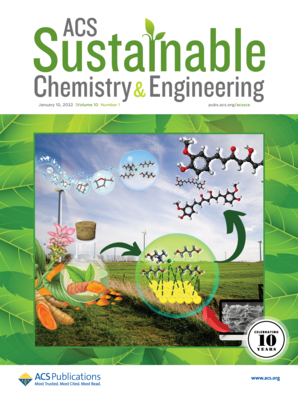Controlling the cis/trans Content of Biobased Unsaturated Polyesters by Judicious Choice of a Biosourced Catalyst
IF 7.1
1区 化学
Q1 CHEMISTRY, MULTIDISCIPLINARY
引用次数: 0
Abstract
Replacing fossil-derived polymers with biobased alternatives is essential to reduce the environmental impact of plastics production, as it helps to decrease reliance on finite fossil resources and promotes sustainability by using renewable raw materials. However, biobased options remain scarce in the industry, as it is difficult to produce fully biobased polymers at a reasonable cost with the same functional properties. In this study, 100% biobased unsaturated polyesters are synthesized from maleic acid and 1,3-propanediol through bulk polycondensation mediated by biosourced catalysts. The resulting materials present different degrees of double bond isomerization depending on the catalyst employed, with higher trans content obtained using catalysts that exhibit greater nucleophilicity. With the objective of using these polyester resins for additive manufacturing, the reactivity of the double bonds was analyzed through FTIR and photo-DSC, while the cross-linking process was studied by photorheology, which highlighted the superior reactivity of the trans double bonds. This study opens avenues for the synthesis of 100% biosourced polyester resins with tunable cis/trans content.

求助全文
约1分钟内获得全文
求助全文
来源期刊

ACS Sustainable Chemistry & Engineering
CHEMISTRY, MULTIDISCIPLINARY-ENGINEERING, CHEMICAL
CiteScore
13.80
自引率
4.80%
发文量
1470
审稿时长
1.7 months
期刊介绍:
ACS Sustainable Chemistry & Engineering is a prestigious weekly peer-reviewed scientific journal published by the American Chemical Society. Dedicated to advancing the principles of green chemistry and green engineering, it covers a wide array of research topics including green chemistry, green engineering, biomass, alternative energy, and life cycle assessment.
The journal welcomes submissions in various formats, including Letters, Articles, Features, and Perspectives (Reviews), that address the challenges of sustainability in the chemical enterprise and contribute to the advancement of sustainable practices. Join us in shaping the future of sustainable chemistry and engineering.
 求助内容:
求助内容: 应助结果提醒方式:
应助结果提醒方式:


